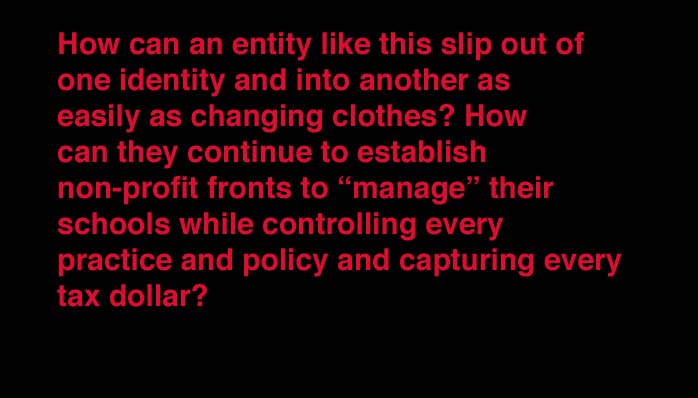Report Documents Huge Problems with Virtual Ed Giant K12 Inc

By Darcy Bedortha.
On Thursday, February 26th I had the privilege of joining a conference call regarding the release of a reportsponsored by In The Public Interest, documenting the performance of the K12 Inc. subsidiary California Virtual Academy. This was of interest to me because, even after more than a year away from my own experience with a K12 Inc affiliated virtual school, I am still, continuously it seems, connected. (See 15 Months in Virtual Charter Hell: A Teacher’s Tale). Nothing that was reported by the study’s authors was surprising to me. The research I had done in a personal (and then quite public) attempt to explain my own experience pointed clearly to the same conclusions – the for-profit and arguably predatory model of “education” is failing our students.
What has been surprising to me is the frequency with which this issue rises to the surface in my world. Out of the blue I am still contacted by people who simply want to vent, cry, or share a similar story, or by journalists wanting one more question answered, or by students who have failed online and are now showing up at an alternative program I am involved with, or sometimes inadvertently by other students who need a tutor because they are not finding success in their own attempt at “online school”. It is stunning the number of people who happen to cross paths with me who have been impacted by one of these corporately-owned virtual schools.
Recently I and a growing number of vocal opponents to our own district’s sponsorship of a K12 Inc affiliate spoke out at a public forum regarding the renewal of its charter. In a well-earned victory, our district stood for ethics above profits, and denied the charter’s renewal. I doubt that it will mean the end of the charter school, regardless of the fact that its most recent data showed between 10 and 16% of its students were graduating. The marketing department at K12 Inc is a powerful and highly skilled force, and I am certain they will convince a small district, strapped for cash, that this is a money-making opportunity. The market-eers are undoubtedly already on the search…
The report cited a number of failures I was quite familiar with: low graduation rate, high student turnover, high demands on teaching staff for clerical work, questionable attendance policies, overworked counselors, frustrated students, technological challenges, etc. None of this was new. Neither was the accusations of K12 Inc’s heavy handed or even “aggressive” recruitment practices. Everything I read in the report, and everything I heard in the conference call confirmed what I had also experienced and what my own researchhad uncovered. In the executive summary of the ITPI report it states:
Several findings suggest that the virtual education model advanced by K12 Inc. in California does not adequately serve many of its students. In every year since it began graduating students, except 2013, CAVA has had more dropouts than graduates. Its academic growth was negative for most of its history and it did not keep up with other demographically similar schools after 2005. Its Academic Performance Index scores consistently ranked poorly against other demographically similar schools and the state as a whole. Evidence of low quality educational materials, understaffing of clerical employees and low teacher salaries all indicates that an additional investment of resources in the classroom is necessary for improvement. (2015. Virtual Public Education in California. p1. via Inthepublicinterest.org)
One of the points made in the report that I did find disturbing was the truly tiny size of some of the districts Report Documents Huge Problems with Virtual Ed Giant K12 Inc - Living in Dialogue:


Big Education Ape: Report Slams Virtual Charter Schools That Graduate Just 36% Of Students - BuzzFeed News http://bit.ly/1AVX7nl


